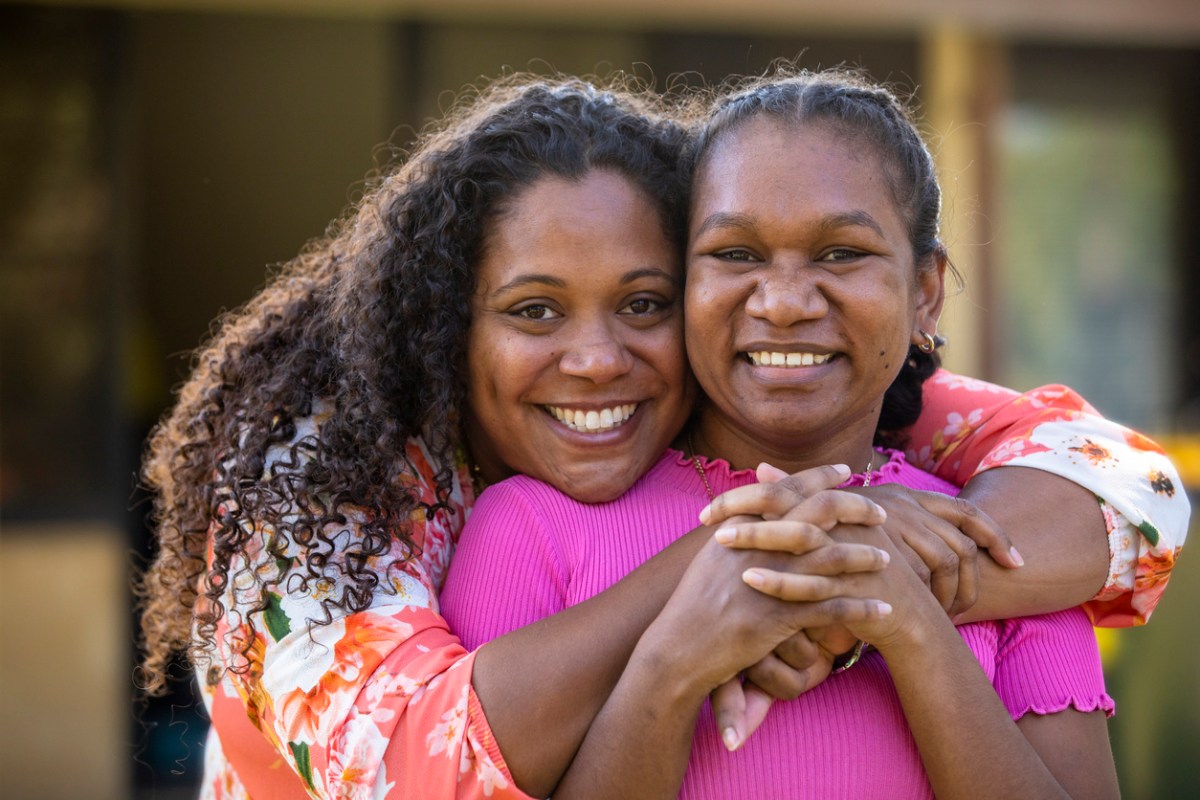Starting a business is hard enough, and if you want to grow you may need to raise capital, but that’s a whole new skillset, and it will take a lot of your time. These problems are then compounded if you’re not based in a major city, and if you’re a woman or Indigenous then you’ll likely face even more obstacles.
Kat Henaway and Carol Vale know these challenges well. They’ve both overcome them to build resilient businesses, but now, they want to help other Indigenous women do the same. So they’re launching Australia’s first Indigenous gender lens investment fund.
“We want to provide support to all those Indigenous-women led enterprises, hopefully, to make their lives a lot easier than ours has been.” Kat Henaway explains.
Kat’s lived experience of both the geographic as well as prejudicial boundaries that Indigenous women face, paired with her strong network of enterprises all over Australia, means she already has a strong deal book.
“A lot of people will complain that the difficult part is finding the pipeline of deals, rather than starting the fund. No, no I say, it’s not difficult for us to find a pipeline, I’ve been working directly with Indigenous businesses for several years, the challenge for these women is access to capital.” Kat says.
Raising $160 million
They’re not starting small, Kat and Carol have identified a deep pool of businesses, that currently aren’t being served.
“The first iteration of the fund, which will be the gender lens focus, we are looking to raise $160 million over five years.” Kat says.
“Similar to the experiences of all women, when it comes to finance, we struggle to access capital, particularly seed capital and venture capital, which is almost non-existent for Indigenous women.”
The best investors identify opportunities that others don’t see, and Kat is convinced that Indigenous female entrepreneurs are largely ignored.
“A key issue is lack of visibility, so we don’t even know how big the market is. We don’t know how many Indigenous women are actually running businesses. We don’t know what their needs are. We don’t know where they are. So that’s the first step, just to actually quantify and qualify.” Kat says.
“Plus, I think one of the reasons we’re so passionate about supporting this sector is because we know that Indigenous businesses are 50 to 100 times more likely to employ Indigenous people. So the more the sector grows, the more secure employment we can provide to Indigenous people.”
Multiple Headwinds
I pushed Kat to explain more about why it’s so much harder for women to raise capital? Is it bias and prejudice, or is it a lack of accelerators and networking groups?
“It is a combination of bias, combined with a lack of resources as well. In the Indigenous business sector, there’s very little in the way of grants and funding tailored to women. Whenever funds are distributed, we don’t know how much of that will be preferenced for women.” Kat says.
“In fact, it’s rare to see funds, specifically developed for Indigenous women. I think there’s one coming out, either at the end of this year or early next year. That’s about the first grant round we’ve seen that the government has put together specifically for Indigenous women in business.”
Reducing Gender-Based Violence Through Building Viable Businesses
These businesses need capital, and they need to prove they’re operations are viable, with solid growth prospects. But at the same time, Kat and Carol are targeting returns beyond just the financial, they want to measure growth in community employment, wellbeing, as well as potential impacts on reducing gender based violence.
“Some of the measures will be around community development, also personal and family wellbeing and safety.” Kat says.
“And importantly, we’re looking to use finance to reduce gender-based violence. Experiences of domestic violence for Indigenous women are very high. And we know that providing opportunities for Indigenous women, to develop their own enterprises, and to experience their own autonomy, agency and self determination through micro enterprise, we know that that is a really wonderful way to give women opportunities to leave relationships, and leave situations where they may be experiencing domestic violence, and to discover a new way of supporting themselves.”
The benefits of reliable employment stretched beyond just financial. It’s agency and self-empowerment, and having a network to call 0n should you need to flee domestic violence.
“Often there’s very little employment in Indigenous communities, particularly remote communities. So again, micro enterprise is a wonderful way for marginalised women to actually start creating their own autonomy.” Kat says.
And the follow-on effects are self-enforcing.
“What we tend to find is that when Indigenous women learn how to start businesses they invariably want to teach other women; young women, daughters, nieces, in their communities, how to run their own enterprises. So measuring that type of impact will help us to understand the development that’s occurring in communities as a result of this type of investment.” Kat says.
Investor Opportunity to Hear More
Kat and Carol came together at the Gender Lens Summit earlier this year, and with a little convincing, they realised the potential of a dedicated fund.
“It’s been a long time coming, Carol and I have been talking about the issues that we face, and that we’re trying to solve in our communities. And so it’s been many years looking at lots of different models and talking over different solutions. We both ended up at the Gender Lens Summit in May this year and heard Manita Ray of Capital Human motivating us to commit to act. It was at that summit that we decided to do something in the gender lens investing space.” Kat says.
On Friday 19th November, Kat and Carol will hold a lunchtime session for investors to hear more about the opportunity. They’ll offer stories about their own business journeys, and the opportunity they see in helping other women on theirs. Register here.

